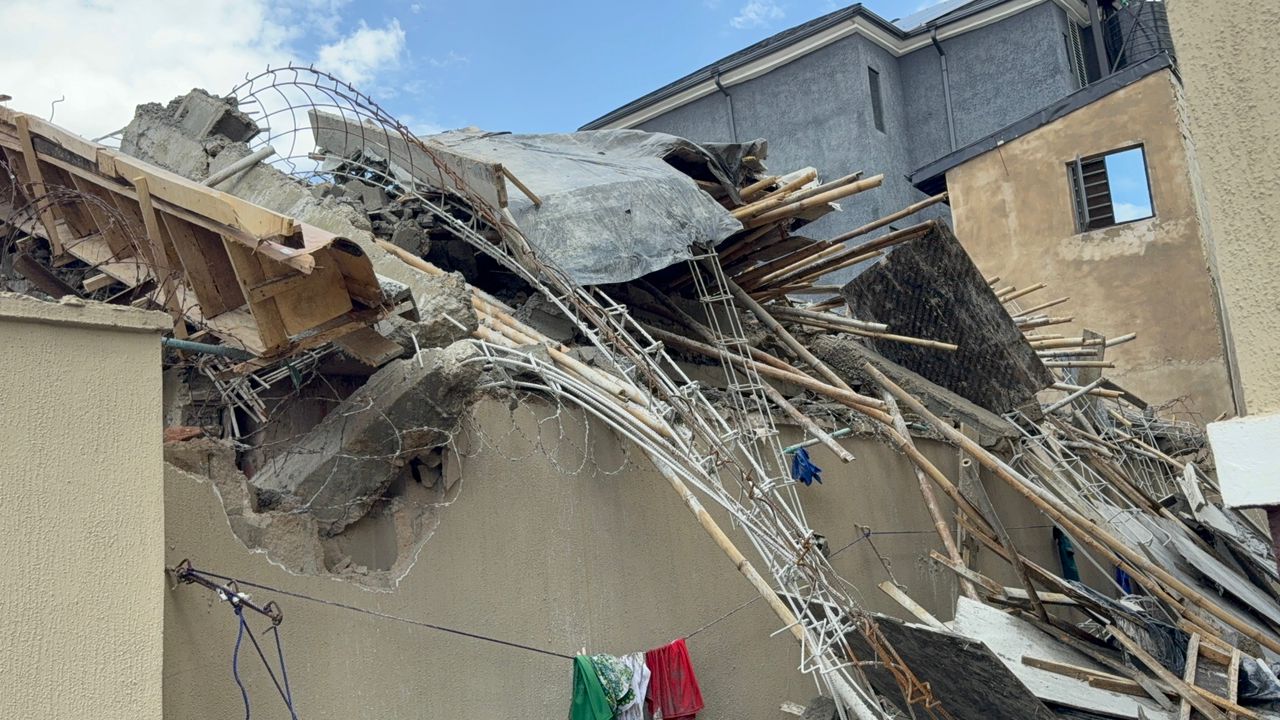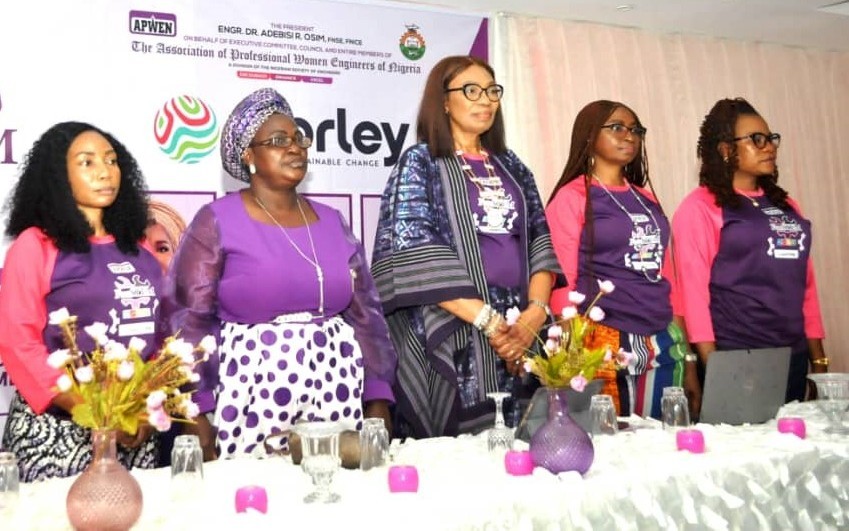Nigeria’s mortgage system has been crippled by soaring interest rates of 20–25 per cent, weak land administration, and a mismatch between short-term bank deposits and long-term housing loans. With less than one per cent of Nigerians able to access mortgages, the market remains dominated by rentals, cash purchases, and informal housing, leaving a deficit of over 20 million units, CHINEDUM UWAEGBULAM reports.
In many countries, mortgages are the bridge to homeownership, helping families spread payments over decades. But in Nigeria, that bridge is shaky. With mortgage rates hovering between 20 and 25 per cent, the dream of owning a home through bank financing remains distant for most Nigerians.
Instead of stimulating homeownership, the system has entrenched a housing market dominated by rentals, cash transactions, and informal settlements, a trend that experts said deepens inequality and leaves the country’s housing deficit, now estimated at over 20 million units, largely unresolved.
The Central Bank of Nigeria (CBN) has kept benchmark interest rates high to fight inflation, which recently surged past 25 per cent. Commercial banks, in turn, price mortgage loans even higher, making repayment nearly impossible for average households.
For banks, the challenge runs deeper. Mortgages are long-term loans, but most of their funds come from short-term deposits. Lending for 15 to 20 years from such funds is risky, and that risk is transferred to borrowers through higher interest rates.
The effect is visible across Nigerian cities. In Lagos, Kano, Abuja and Port Harcourt, the wealthy continue to buy properties outright, often as investment hedges against inflation. Developers, in turn, prefer to build for this niche market, producing high-end apartments and gated estates that remain empty or under-occupied.
The middle class is squeezed into renting. Landlords demand one or two years’ rent upfront, pushing many families to the brink. Meanwhile, millions of low-income earners turn to informal land purchases and “incremental building,” erecting homes bit by bit without approved plans or infrastructure. This distortion explains why less than one per cent of Nigerians have formal mortgages, compared to 30 per cent in South Africa.
Weak housing finance system
NIGERIA’S attempts to strengthen housing finance have not yielded much. The Nigeria Mortgage Refinance Company (NMRC), launched in 2014 to provide long-term liquidity to banks, has had only a marginal impact.
Similarly, the National Housing Fund (NHF), run by the Federal Mortgage Bank of Nigeria (FMBN), is riddled with bureaucracy. While civil servants and some private-sector workers contribute to the fund, millions in the informal economy remain excluded. Many contributors who apply for housing loans abandon the process after facing long delays.
Even when financing is available, Nigeria’s land administration remains a major barrier. Processing a Certificate of Occupancy (C of O) can take years and involve multiple layers of approval and costs. For banks, this means property collateral is often unclear or disputed. Recovering assets in default cases requires lengthy court processes, discouraging lenders from expanding their mortgage portfolios.
MOFI’s Real Estate Fund: A glimmer of hope
ONE bright spot in the gloomy picture is the MOFI Real Estate Investment Fund (MREIF), launched in 2024 to mobilise long-term capital for housing. Backed initially by a N150 billion subscription and later expanded with N100 billion from private investors, the fund aims to scale up to N1 trillion.
Unlike commercial lenders, MREIF pools affordable capital from institutional investors such as pension funds and development partners, then channels it into mortgages and developer guarantees. This has allowed participating mortgage banks to issue loans at single-digit to low double-digit rates — some as low as 9.75 per cent over 20 to 25 years.
For many Nigerians, this is the first real chance at affordable mortgage financing. Over 100 mortgages have already been disbursed under the scheme, while off-take guarantees are giving developers confidence to embark on larger housing projects.
Still, challenges remain. Most of the loans so far are in the N50–N100 million range and targeting upper-middle buyers rather than the low-income majority. Analysts warn that unless MREIF scales faster and works with state governments on land and infrastructure, its impact could be limited.
Pathways to reform
EXPERTS said MREIF’s early progress shows that with the right policies, Nigeria can reset its housing market. They argue that stabilising inflation, reforming land administration, and scaling up mortgage-backed securities are critical to making mortgages widely affordable.
On the supply side, partnerships with developers, backed by off-take guarantees, could unlock mass housing projects rather than scattered luxury builds. Rent-to-own schemes and targeted subsidies could further bridge affordability gaps.
The Executive Secretary/Chief Executive Officer of the Mortgage Banking Association of Nigeria (MBAN), Dr Adedeji Ajadi, told The Guardian that mortgage rates in Nigeria remain among the highest in Africa, driven largely by macroeconomic realities that outweigh government interventions. According to him, high inflation, elevated benchmark interest rates, and the overall cost of funds in the financial system continue to push mortgage costs upward.
He added that structural challenges such as weak land titling systems, slow foreclosure processes, and high operational costs make mortgages riskier and more expensive, even with support mechanisms like NMRC.
Ajadi explained that MBAN works closely with regulators and development partners to provide cheaper, long-term liquidity, while also stepping up its advocacy role to ensure more favourable housing finance policies. “The association has been pushing for measures to reduce the cost of funds and extend mortgage tenures, while promoting government-backed schemes such as MREIF, Family Homes Funds (FHF), and the recent approval for Nigerians to use 25 per cent of their Retirement Savings Account balances as equity contributions for mortgages,” he said.
Although less than one per cent of Nigerians currently access formal mortgages, Ajadi expressed optimism that the sector is on the verge of transformation. He noted that while government intervention programmes have created new opportunities, long-term growth will depend on structural reforms, especially in land registration, titling, property transfers, and foreclosure processes.
MBAN is also promoting innovation in mortgage products tailored to both formal and informal earners, alongside technology adoption to drive cost efficiency and financial inclusion. Partnerships with housing developers and capacity building for mortgage professionals, he said, are part of the roadmap to broaden access.
Ajadi stressed that the central challenge remains access to long-term funding, as pension funds, insurance companies, and the capital market hold vast investible assets. He called for more reforms to channel these into housing finance. According to him, MBAN is advocating for a level playing field in financial services, a review of mortgage banking guidelines to make the sub-sector more competitive, and the creation of capital market instruments such as mortgage-backed securities and covered bonds. With improved risk management and guarantee schemes, he added, mortgage assets could become more attractive to institutional investors.
A private developer and Chief Executive Officer of NISH Affordable Housing Limited, Dr Saheed Adelakun, has highlighted how high interest rates continue to weaken mortgage affordability in Nigeria, limiting the ability of off-takers to qualify for housing loans.
“With the same income and tenure, reducing interest rates from 10 per cent to 5 per cent can nearly double affordability. While FMBN’s six per cent rate is attractive, accessibility and adequacy remain the biggest hurdles. MREIF, by lowering rates from 12 to 9.75 per cent, is already drawing interest from developers and off-takers. Its partnership with the Family Homes Fund on blended finance is a game-changer. If extended to the Federal Government Staff Housing Loans Board (FGSHLB), it could transform access for civil servants,” he told The Guardian.
Adelakun observed that most developers gravitate towards luxury and upper-middle-class estates due to higher returns and less dependence on mortgages. “Affordable housing yields slim profit margins compared to luxury projects. Besides, luxury buyers readily pay off-plan, and reducing financing stress,” he said.
He called on the government to provide incentives that would make affordable housing attractive, such as easier land allocation, provision of infrastructure, expedited land title and planning approvals, pre-approved mortgages, and guarantees for off-takers. He also urged investment in modern building technologies, likening it to the government’s support for agriculture through tractors.
With MREIF’s N250 billion injection into the mortgage market, Adelakun expressed optimism about improved access and adequacy of housing finance. He urged FMBN to focus on its mortgage-lending mandate while offering guarantees to developers rather than construction loans, backed by stronger government intervention funds and full enforcement of NHF contributions.
He further recommended recapitalising and upgrading the FGSHLB into a primary mortgage bank for greater impact, while re-energising the Federal Integrated Staff Housing (FISH) Cooperative through digitalisation to mobilise public servants’ savings for equity and impact investments.
The former Chairman of the Nigerian Institution of Estate Surveyors and Valuers (NIESV), Faculty of Estate Agency and Marketing, Sam Eboigbe, has said that high mortgage rates have reduced property demand, as homeownership is becoming increasingly unaffordable due to escalating repayment obligations and weak purchasing power.
Eboigbe explained that several prospective buyers who offered to purchase expired interests in property listings were unable to conclude the transactions on time because of the rigorous bureaucratic processes for approval and disbursement imposed by lenders.
He noted that the stringent requirements for accessing mortgages discourage many applicants. “Only a few have the courage to painstakingly go through the entire process. Those who opt for renting or starter homes often do so as a reflection of their financial conditions, making lifestyle adjustments through adaptable housing options,” he said.
According to him, the lack of acceptable titles remains a major stumbling block as lenders are reluctant to approve loans without a proper legal claim to the property. “A defective title increases the risk burden and exposure of lenders, making such proposals dead on arrival because they cannot enforce their lien in cases of inevitable default,” he explained.
Eboigbe urged the government to take decisive steps to lower interest rates, extend loan tenures, expand access to credit, and put in place a robust regulatory framework that would have a real impact on the mortgage sector.






